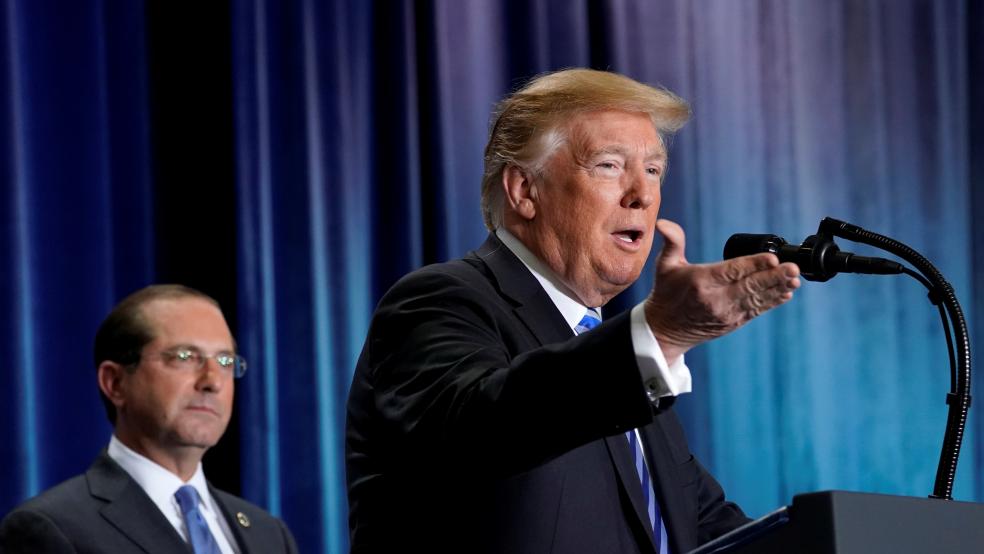President Trump on Thursday said his administration is taking “revolutionary” action to change how Medicare pays for some drugs and end what he described as a “rigged” and “unfair” system that results in higher prices in the U.S. than in other developed countries.
“We’re taking aim at the global freeloading that forces American consumers to subsidize lower prices in foreign countries through higher prices in our country,” Trump said in a speech at the Department of Health and Human Services.
Medicare Part B, which covers drugs administered in a doctor's office, currently pays 106 percent of the “average sales price” for drugs, based on data submitted by drugmakers. The Trump administration’s proposal calls for the creation of an experimental “international pricing index” that would use the lower prices paid by other advanced industrial countries as benchmarks for payments under the Part B program.
The proposal doesn’t require congressional action but still has to go through the federal rule-making process. Under a pilot program, the pricing index would apply to 50 percent of the country.
Trump’s announcement followed the release of a Health and Human Services report that compared U.S. and international prices for 27 of the costliest Medicare Part B drugs. On average, HHS says, Medicare pays 180 percent of what other wealthy countries pay for the most costly physician-administered drugs. “Medicare could achieve significant savings if prices in the U.S. were similar to those of other large market-based economies,” the report concluded.
HHS Secretary Azar tweeted that “Medicare was found to be paying the highest price for 19 out of the 27 drugs studied compared to these other countries. There was only a single case in which the US was paying lower than the international average.”
Why it matters: This is the Trump administration’s most aggressive move yet to lower drug prices. “The proposal more aggressively moves to have the government intervene to lower drug prices than proposals often favored by Republicans,” The Hill’s Peter Sullivan says. But the proposal only applies to drugs administered in doctors’ offices and outpatient hospital settings — “medicines like cancer treatments and injectable treatments for rheumatoid arthritis or eye conditions,” Politico explains. It won’t affect prices for drugs dispensed at pharmacy counters.
The bottom line: The administration estimates that the new pricing index, would save American taxpayers and patients $17.2 billion over five years. It also says that the proposed changes would remove financial incentives for doctors to prescribe higher-priced drugs, since they would no longer be paid based on a drug’s cost but instead would receive a flat fee. But the drug industry is unlikely to embrace the proposal, and a similar effort to address Medicare Part B prices in the Obama administration went nowhere, says Politico.





